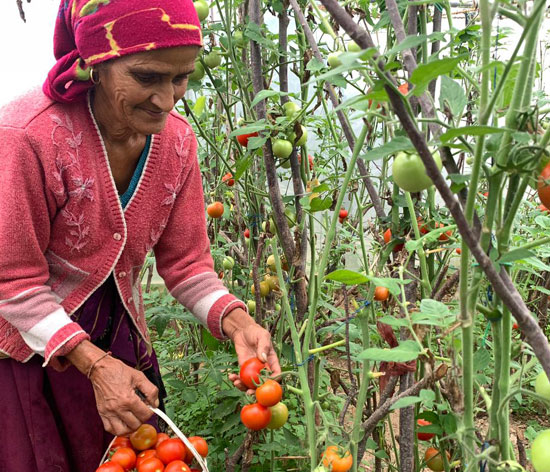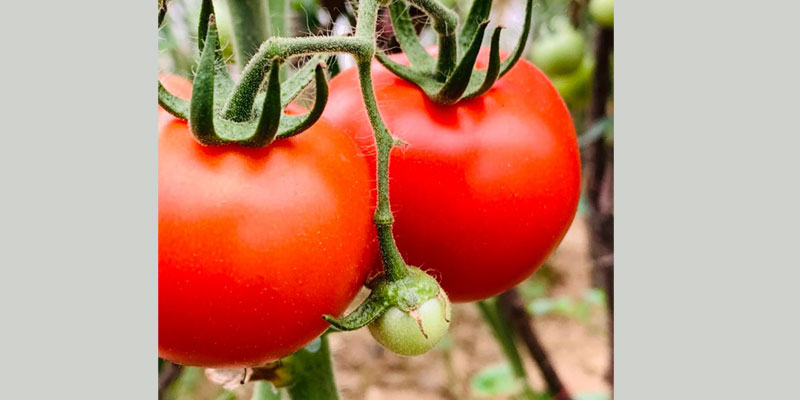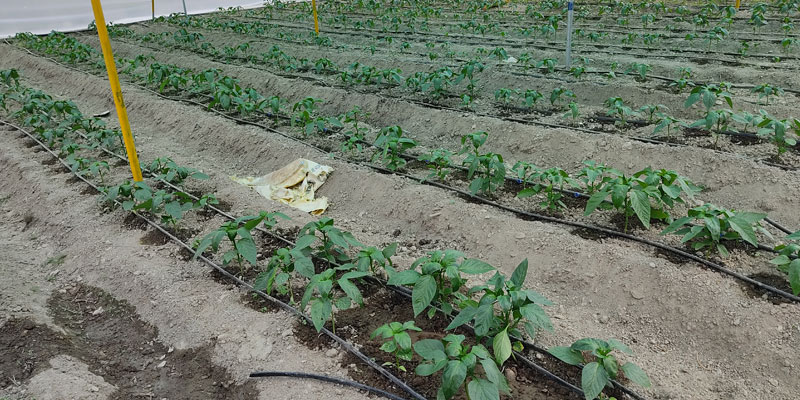
When Roop Devi’s husband Kunwal Chand passed away, their family of four were in dire straits. Their only source of income was from agriculture, and with Kunwal Chand’s demise, Roop Devi did not know how they would subsist. When her husband was alive, their annual income was approximately Rs10,000. Now, the resident of Saud Jadipani village in Chamba block, Tehri district, Uttarakhand, had to find the means to feed her family that included her two sons and a daughter-in-law.
Saud Jadipani is situated in the hills of Uttarakhand, 2000m above mean sea level. The major crops sown in this region are peas, potato, and cabbage. There were only two growing seasons – the Rabi and the Kharif since the climatic conditions were unfavourable for crop cultivation in the other seasons. However, the villagers’ lack of technical knowhow and dependence on rain-fed irrigation often led to poor harvests. The area also lacked transportation and a good marketing facility.
The villagers were forced to sell their produce in the local vegetable mandi which had a monopoly in the region and paid very little for the crops.

A multipronged initiative
Agriculture has been a key focus area for the Tata Trusts since its inception. Its associate organisation, Himmotthan, has been working closely with the farming community, especially the women, in the region since 2013, to understand their challenges and improve their livelihood. Himmotthan also initiates the formation of women’s Self Help Groups (SHGs) which serve as a bridge between the organisation and the local community. Information about project interventions is disseminated through the SHGs.
One such intervention is Himmotthan’s Lakhpati Kisan Yojana (LKY) that aims to empower rural communities, so as to enhance their annual income, ensure food security and improve their quality of life. So, in collaboration with the District Horticulture Department, Himmotthan constructed six polyhouse farming structures costing Rs120,000 in the Jadipani cluster.

Protected cultivation
Polyhouses are 100sq.m iron structures covered with a recommended translucent polythene sheet. Polyhouse structures enable:
- Cultivation of vegetables throughout the year
- Cultivation of high-value crops (including off-season vegetables like tomato and capsicum and floriculture)
- Cultivation in controlled temperature
- Less pests, insects and weed stress
- Less damage from extreme weather
- Negligible damage from wild animals
- Good drainage and aeration
- Better quality of crops
- Increased yield (2-5 times)
- Reduced water and pesticide usage
The project was heavily subsidised, the District Horticulture Department bore 80% of the cost, to promote the intervention and make it viable for the community. The remaining 20% was equally distributed between the beneficiaries and LKY, Himmotthan. From drafting the proposals and applications of beneficiaries to input supply, transfer of technology, production, and marketing, the Himmotthan team worked hard to ensure the project’s success. Once the polyhouses were installed, the team also needed to arrange quality seed and water for irrigation and teach beneficiaries the cultivation method under polyhouses.
Ground impact
Roop Devi, now a member of SHG Gaura Devi, applied to be one of the beneficiaries. She had availed of a loan of Rs12,000 at 1% interest from the SHG in order to pay the beneficiary share. Himmotthan’s team members taught her and the other beneficiaries how to grow more than one crop in the polyhouses to minimise the risk of failure. They provided technical assistance on high yield seeds, disease management and low-cost rainwater harvesting structures to support irrigation. The team also helped the beneficiaries obtain packaging materials like cardboard boxes and net bags for transportation.
Roop Devi now follows a proper package of practices (PoP) and grows high-yielding varieties of tomatoes and capsicum in the polyhouse round the year. Outside, she still cultivates seasonal vegetables. A low-cost rainwater harvesting tank helps to irrigate the crops; this has led to a 16% increase in production. The Himmotthan team through cluster level women federation facilitated the packaging, marketing, and transportation of vegetables to the bigger mandis in Dehradun, which helped her obtain a better price for her produce. Today, Roop Devi earns an additional Rs120,000 from the sale of off-season vegetables from the polyhouse.
Himmotthan hopes that Roop Devi’s success will encourage others in the community to benefit from this scheme. Future plans include training farmers to cultivate exotic vegetables which fetch a better price in the market.
